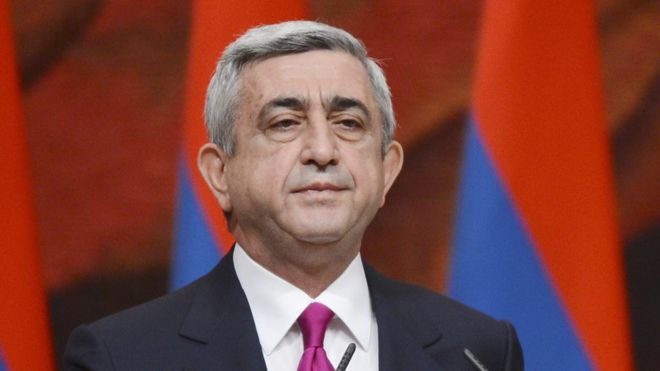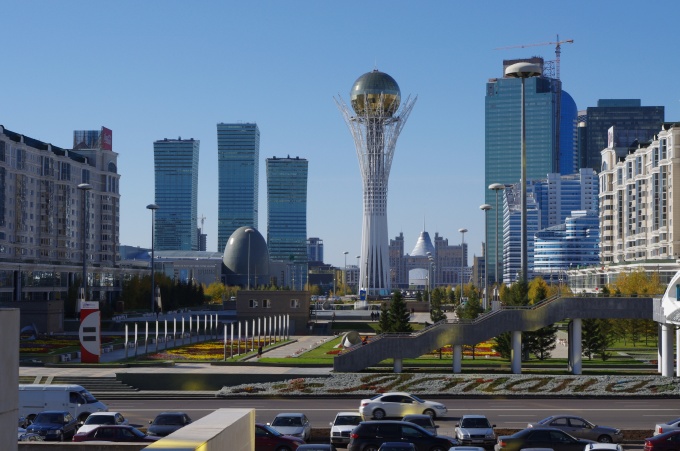
This past Friday, the UN Security Council held a meeting to discuss once again the conflict in Ukraine. And unsurprisingly, the most that was accomplished was the United States and Russia accusing the other of fueling the unrest and a stalling of any meaningful solution to the situation in the country, Reuters reports. This comes two years after the initial Euromaidan protests against Former President Viktor Yanukovich began, thus marking the second birthday of the conflict.
The accusations were nothing that has not been seen before. The Western Members of the Security Council, although in particular the United States, accused Russia of suppressing information of the Conflict and backing the armed separatists in the east of the Ukraine, both of which are true, and Russia accused the United States of destabilizing Ukraine and playing a “destructive role”, which is an exaggeration. Although many the state-controlled Russian media often states the US of spreading misinformation and it was in fact a CIA-backed coup that took out Yanukovich in Ukraine, the US’s actual role in Ukraine has largely been limited. Although the US supports the pro-Western Ukrainian government both politically and militarily, it, along with the other Western countries, could honestly be doing much more to help Ukraine purge its rampant corruption and manage its crippling economy. The fact that they have done very little on this front is troubling, as it could lead to the Ukrainian population losing sight of the European Dream, and once again swinging the country back into Russia’s influence. Of course, any constructive role that the US or the EU will try to play in Ukraine will be seen by Russia as “destructive.”
Probably one of the more interesting moments of the UN Security Council meeting was when it was delayed for half an hour due to Russian objections for a human rights briefing on the situation in both Eastern Ukraine and Crimea. The Russian UN Ambassador Vitaly Churkin stated the reason was that the Assistant Secretary-General for Human Rights should instead save his briefing for the Human Rights Council in Geneva, and not present it to the Security Council. Of course, one can guess the real reason: Russia is currently doing as much as possible to suppress information on the human rights abuses in Donbass and Crimea. As the rule of law is largely nonexistent in the regions held by the separatists, killings, torture, and overall ill-treatment are often present in allegations against the pro-Russians in the East. And in Crimea, many individuals that are against the Russian annexation live in fear; entire ethnic groups, such as the Crimean Tatars, are treated with suspicion by the Russian government. It should be noted that there are allegations of arbitrary detention torture against the Ukrainian Government over the course of the conflict as well. But they pale in comparison to the allegations of abuses on the Russian side.
Today, when Russian and US officials meet, there are usually two talking points: Ukraine and Syria. And increasingly, one topic has been dominating the discussions between them. As we have discussed in previous articles, it is advantageous for Russia to find an end to the Syrian Civil War, even if it means working with the West. The Islamic State poses a very real and serious threat to Russia, as a separatist Jihadi group in Russia’s Northern Caucasus region has pledged allegiance to the group. Recently, President Putin claimed that the Russian Air Force has helped the Free Syrian Army rebel group in addition to Syrian Government forces; whether these claims are true or not does not necessarily matter, but it shows that the line between the FSA and Assad is growing smaller in Russia’s eyes, as an agreement between the West, Russia, and the Muslim World over the troubled country seems to be growing closer (despite the Turkish shootdown).
However, in terms of Ukraine, Russia sees no need to rush an end to the conflict; in fact, it may benefit more from its elongation. The longer the unrest continues, the more dissatisfied the Ukrainian population will be become, and the likelier they will vote in another Eurosceptic government that will move the country closer to Russia. So it benefits Russia to continue to provide assistance to the separatists and veto any UN Security Council resolution that attempts to do anything meaningful in Ukraine. The most that Russia could benefit from an end to the conflict is better relations with Europe and the West, but as many European countries (notably Italy, which has pushed back an EU decision on whether to extend Russian sanctions or not) are already tiring of the sanctions against Russia, if Russia is patient and instead focuses its energy on solving the civil war in Syria, then many countries may decide to turn a blind eye on Ukraine and remove the sanctions.
This must not be allowed to happen. Cooperating with Russia on Syria is good, but Ukraine must not be forgotten by the West. Not only should the Western Countries remain firm in their opposition to Russian interventionism in Ukraine, they should increase their support, not only militarily and politically, but economically, for Ukraine. The current government in Ukraine is corrupt, inefficient, inept; the same day as the UN Security Council meeting, a fight even broke out in the Ukrainian Parliament. This is not the sign of an effective government. Ukraine needs the help of the successful liberal democracies of the world to help build a real democracy for their own. It is certainly a daunting task, but it is imperative that the West at least tries; otherwise, they risk losing the good favor of the Ukrainian people, and it would take a long time to get it back. Ukraine must not be forgotten, under any circumstances.

